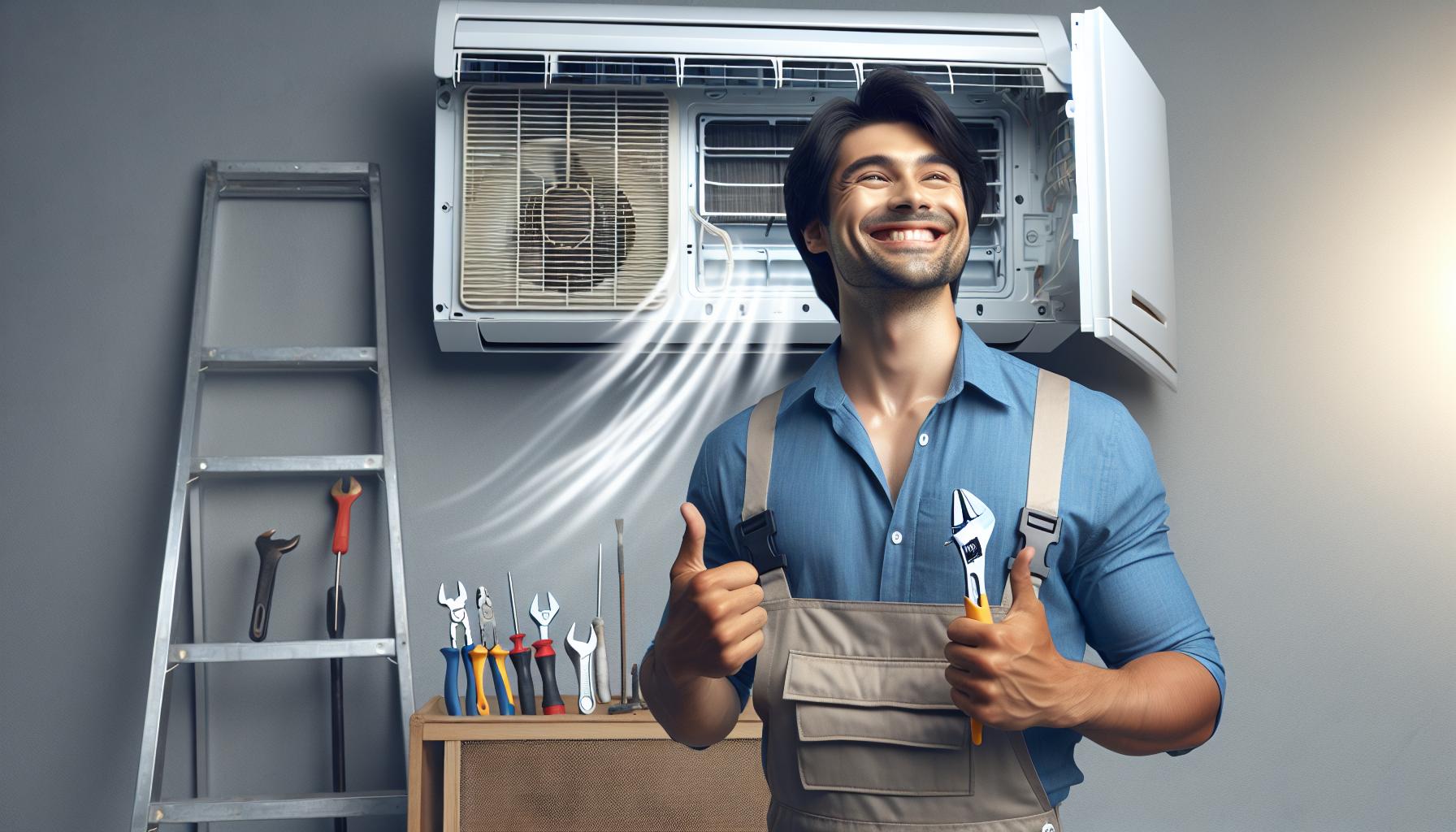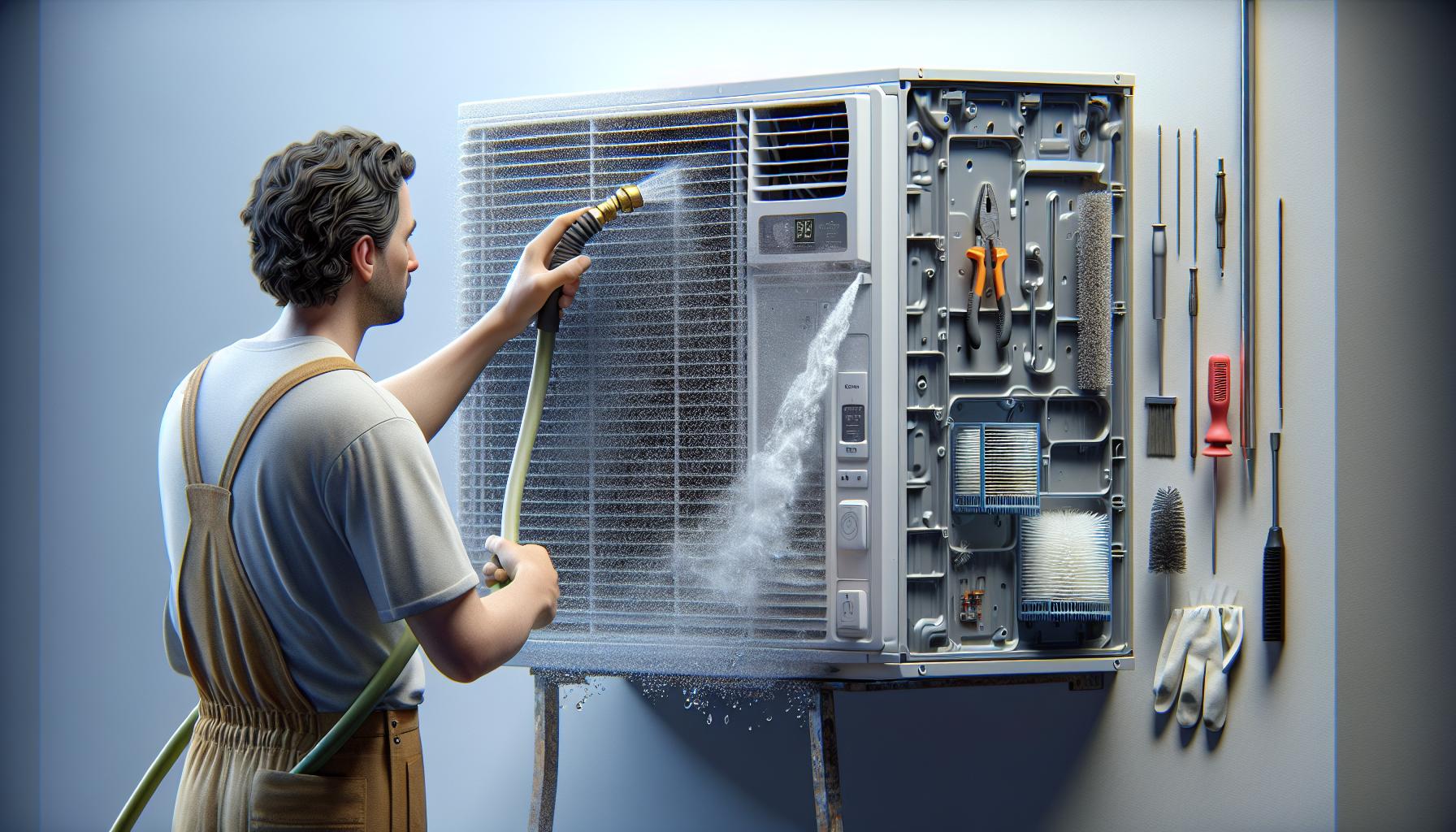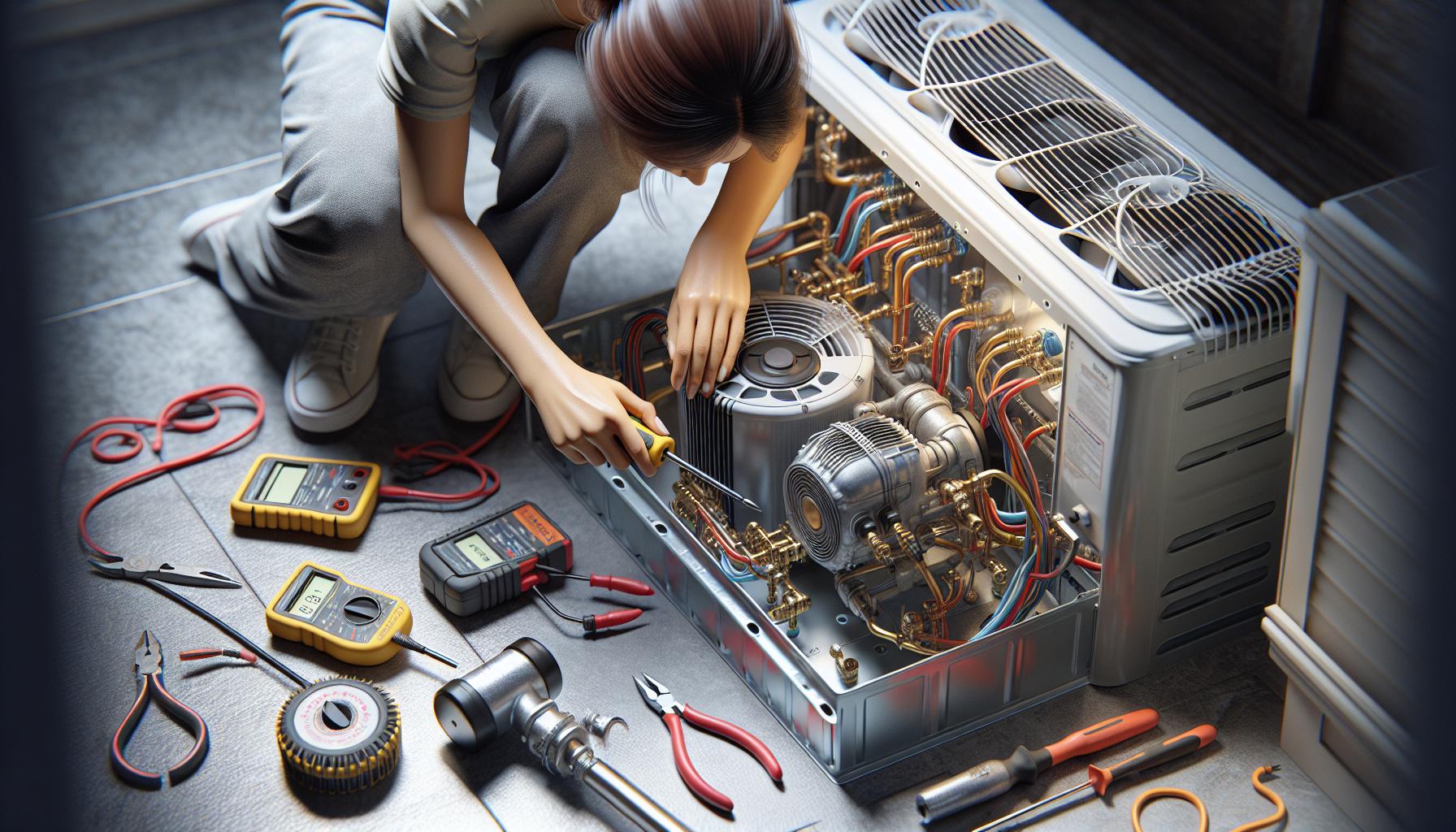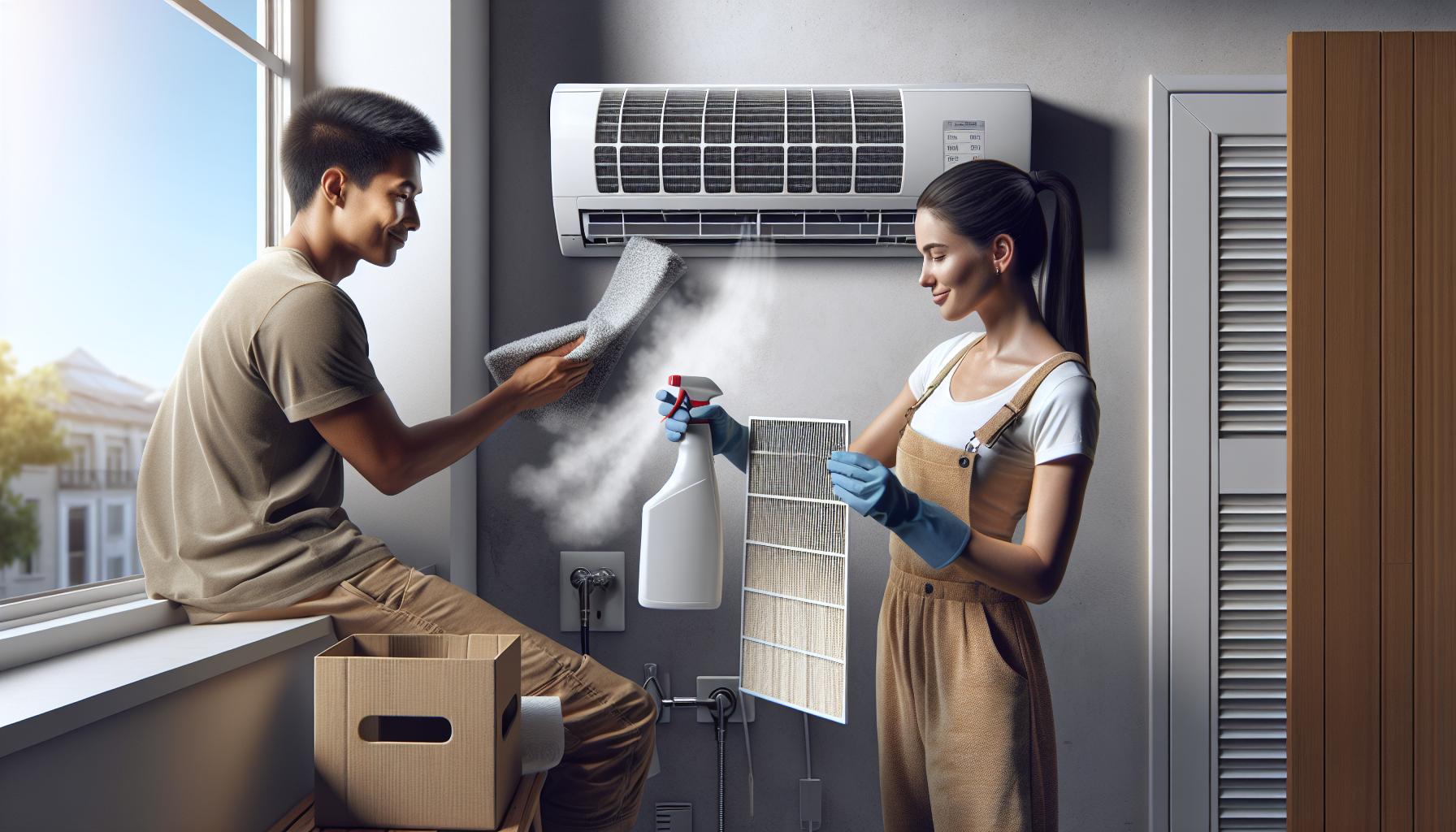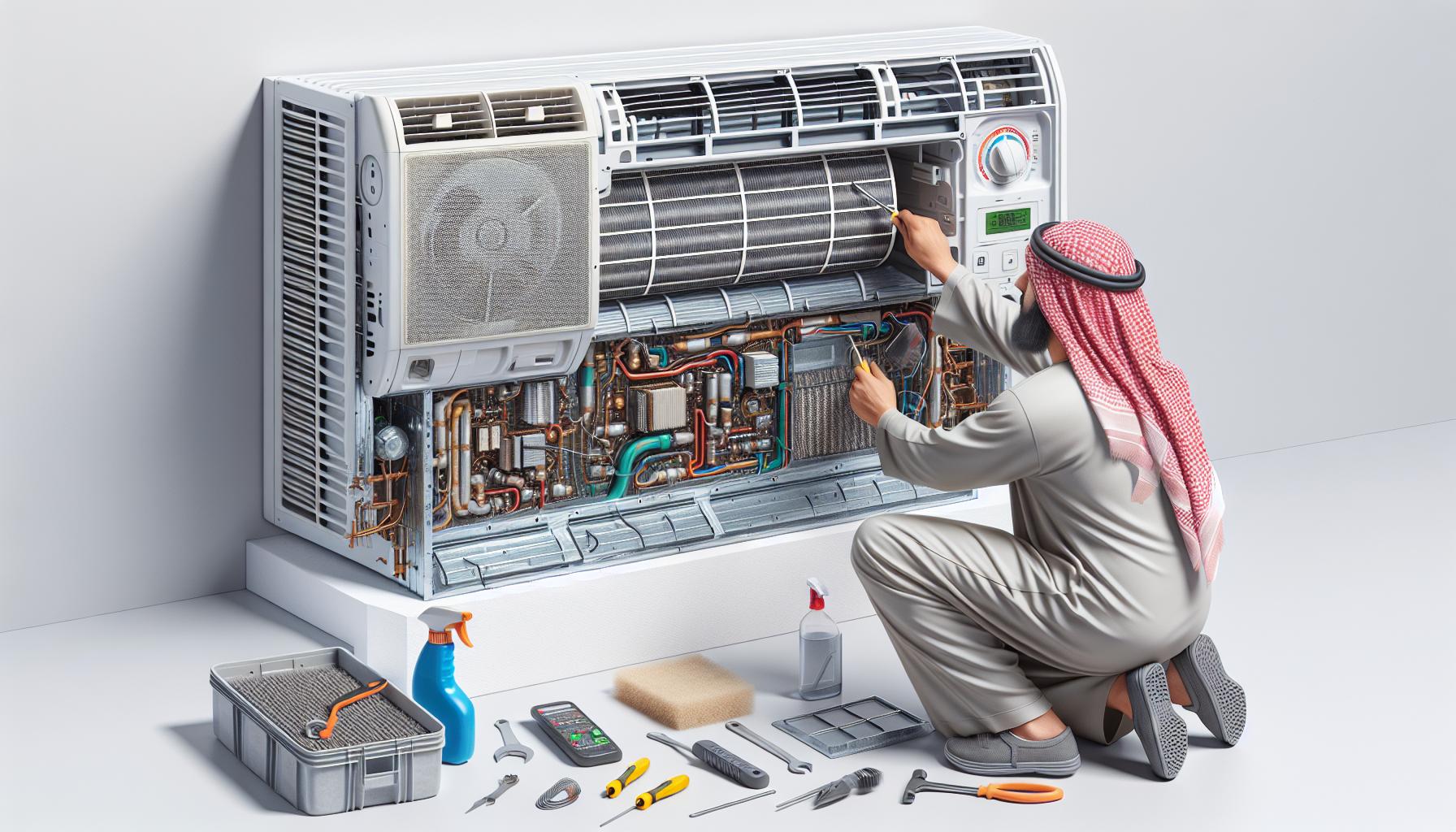Ever wondered how often you should clean your furnace to keep it running efficiently? Regular maintenance is key to extending the life of your heating system and ensuring your home’s air quality isn’t compromised. In this article, you’ll discover the optimal frequency for furnace cleaning and why it’s crucial for both your comfort and your pocket. Stay tuned to uncover simple yet effective tips to maintain your furnace and avoid costly repairs down the line.
Why Regular Furnace Cleaning Is Important
When thinking about maintaining your home, the state of your furnace might not jump to the forefront of your mind. Yet, neglecting this crucial piece of equipment can lead to decreased efficiency and higher energy bills.
Regular furnace cleaning ensures optimal performance and contributes significantly to the system’s longevity. Dirt and debris can accumulate over time, making your furnace work harder to circulate air. This added strain not only diminishes efficiency but can also increase wear and tear, leading to potential malfunctions.
Here are key benefits you’ll experience with routine cleaning:
- Prolonged Equipment Life: Just like any other machine, a clean furnace is a happy furnace. By removing the build-up of particles, you’re safeguarding the inner workings and ensuring a smoother operation.
- Improved Air Quality: A dirty furnace can circulate pollutants throughout your home. By keeping it clean, you’re also contributing to a healthier living environment, which is particularly crucial for those with allergies or respiratory issues.
- Energy Cost Savings: A well-maintained furnace doesn’t have to overexert itself to heat your home, leading to improved energy efficiency and reduced utility bills.
- Safety: A clean furnace reduces the risk of fires and carbon monoxide leaks, keeping your home safe.
- Reduction in Repairs: Regular cleaning can help spot issues before they turn into expensive problems, thereby reducing the need for emergency repairs.
Maintaining your furnace is not just about the immediate benefits. It’s an investment in the comfort and safety of your home. Regular cleaning might seem like a chore, but it’s a small price to pay for the peace of mind and savings it brings in the long run. Make sure to schedule your next cleaning as part of your routine home maintenance.
Factors That Influence Cleaning Frequency
Understanding how often to clean your furnace can be tricky, but certain factors play a pivotal role in determining the right schedule for you.
Type of Furnace Filter
Different filters require varying levels of maintenance. For instance:
- Disposable Fibreglass Filters should be replaced roughly every 30 days.
- High-Efficiency Particulate Air (HEPA) Filters need less frequent changes, typically every 6 to 12 months.
Usage Level
The more you use your furnace, the more frequent the cleaning needs to be. Homes in cooler climates consequently may need to clean or replace filters more often than those in milder regions.
Household Air Quality
If you have pets, smokers, or a high level of dust in your home, your furnace’s filters will clog more quickly. This demands more frequent checks and potential replacements.
Recent Renovations
Construction can introduce large amounts of dust and debris into your HVAC system. If you’ve recently completed a home renovation, a thorough furnace cleaning is essential to maintain efficiency.
Manufacturer Recommendations
Manufacturers provide specific guidelines for maintenance. Always check the user manual for optimal cleaning schedules tailored to your model.
Presence of Allergies or Respiratory Issues
Homes with allergy sufferers may benefit from more regular filter changes to ensure the air remains as clean as possible, enhancing respiratory health.
Regular furnace maintenance is not just about following a template—it’s about adjusting to the needs of your home environment. By considering these critical factors, you can personalize your approach to furnace cleaning, directly impacting your comfort and your furnace’s longevity.
The Recommended Frequency for Furnace Cleaning
When it comes to keeping your furnace in top shape, adhering to a regular cleaning schedule is crucial. You don’t want to be left out in the cold because you’ve neglected your heating system.
Professional Inspection and Cleaning
Professionals recommend that you should have your furnace inspected and cleaned at least once a year. Ideally, this should take place before the onset of the colder months to ensure your system is running efficiently when you need it most.
Visual and Performance Checks
In between professional services, you can perform simple visual and performance checks:
- Filter Inspection: Check your filter every month, especially during high-usage periods. Dirty filters restrict airflow and exacerbate wear, reducing efficiency.
- Air Vents: Keep an eye on your air vents and registers. If you notice unusual dust build-up, it might indicate it’s time for a cleaning.
Specific Circumstances
Some situations may require more frequent cleanings:
| Circumstance | Frequency |
|---|---|
| High furnace usage | Every 3 to 6 months |
| Presence of pets | Every 2 to 3 months |
| Household members with allergies or asthma | Every 2 to 3 months |
| After home renovations | Immediately post-renovation |
| Manufacturer’s specific guidelines | Check the owner’s manual for details |
Remember, keeping up with these guidelines means your furnace will likely last longer, perform better, and save on energy costs. Regular maintenance not only prevents unexpected breakdowns but also ensures the air quality in your home remains high – essential for a healthy living environment.
Signs That Indicate Your Furnace Needs Cleaning
You’re relying on your furnace to keep your home comfortable, but it can’t speak to tell you when it’s struggling. Instead, you need to be on the lookout for the tell-tale signs that suggest your furnace requires a thorough cleaning.
Excessive Dust and Dirt Around Vents: If you’ve noticed a buildup of dirt, dust, or even pet hair around your vents, it’s a sign that the furnace filter may be clogged. This buildup can significantly hinder the airflow and efficiency of your system.
Unpleasant Odors: When you turn on your furnace and are greeted by musty or burning smells, it signifies that dirt, dust or potentially mould, has accumulated within your system and needs to be cleaned out to prevent these odors from permeating your home.
Strange Noises: Banging, whining, or rattling sounds coming from your furnace may not just be a sign of age. These noises could indicate a dirty furnace component adding extra strain to your system.
Increased Heating Bills: If you’ve observed a sudden spike in your heating costs without a corresponding increase in usage, a dirty furnace could be the culprit. Dirt and dust force your furnace to work harder and less efficiently.
Poor Heating Performance: A furnace struggling to maintain the desired temperature could be laboriously pushing air through dirty, clogged filters or vents. Regular cleaning ensures optimal performance.
Frequent Cycling: Does your furnace turn off and on more frequently than it used to? It’s often an indication that the airflow is obstructed by dirt, requiring your system to cycle more to maintain heat.
Health Implications: If you or your family members start experiencing unexplained allergies or respiratory issues, it could be due to contaminants being circulated by a furnace in dire need of cleaning.
Acknowledging these signs and acting promptly doesn’t just ensure your furnace operates effectively; it also prolongs the system’s life and enhances the air quality within your home.
By maintaining awareness of these indicators, you can schedule cleanings as needed and prevent potential issues before they develop into costly repairs. Keep your furnace in top form, and enjoy the warm, clean air it provides to your living space.
DIY Furnace Cleaning Tips
When approaching furnace cleaning on your own, safety is your top priority. Before you begin, ensure the furnace is completely turned off to avoid any accidents. Cleaning your furnace regularly can help prevent those issues you’ve heard about, like soot buildup and inefficient heating.
Gather Your Tools
To kick off your cleaning, you’ll need:
- A high-efficiency vacuum cleaner
- A brush with soft bristles
- Screwdriver to open the furnace cover
- Replacement filters if necessary
Clean and Replace Filters
Start with the furnace filters, which trap dust and debris. You can either clean or replace them depending on their condition. Washable filters can be rinsed with water, while disposable filters must be replaced every three months to maintain air flow and quality.
Vacuum and Dust
With the filter dealt with, focus on vacuuming the interior compartments. Your vacuum’s hose attachment is perfect for this. Gently use your brush to dislodge any trapped dust before vacuuming. This step is crucial for avoiding dust recirculation in your home.
Check Furnace Ducts
Inspect the accessible parts of your furnace ducts. Look for significant dust buildup that can impair your furnace’s operation. If it looks beyond a simple vacuum job, consider hiring a professional to tackle the ductwork comprehensively.
Remember, while you can handle some cleaning tasks, annual inspections by a professional are highly recommended to ensure your furnace runs smoothly and efficiently. Regular maintenance keeps your energy bills in check and extends the lifespan of your heating system.
Benefits of Professional Furnace Cleaning
While DIY efforts are beneficial, enlisting the help of a professional furnace cleaner can bring numerous advantages. A deep clean by an expert not only contributes to the longevity of your furnace but also improves its overall performance. Let’s explore the specific benefits you’ll experience when you opt for professional servicing.
Professionals Employ Advanced Techniques and Tools
Unlike the basic tools you may use at home, professionals have access to high-grade equipment. They use powerful vacuum systems and specialised brushes designed to reach deeply into the system, removing more debris and contaminants than a standard cleaning would.
Increase Energy Efficiency
A thorough cleaning by professional technicians ensures your furnace operates at peak efficiency. Dust and dirt accumulation can force your furnace to work harder, leading to increased energy usage. Professional services ensure that every component is clean, which optimises airflow and reduces energy consumption.
Air Quality Improvements
The cleanliness of your furnace has a direct impact on the air quality in your home. Professionals remove the buildup of allergens, bacteria, and other pollutants, resulting in healthier indoor air for you and your family. This is especially crucial for individuals with allergies or respiratory issues.
Prevent Costly Repairs
During a professional cleaning, technicians can identify and rectify minor issues before they become major problems, potentially saving you from costly repairs in the future. Their expertise allows them to spot signs of wear and tear that you might overlook, ensuring that all parts are in good working order.
Remember, while regular DIY cleaning is a good practice, a professional furnace cleaner adds value through their expertise, which can extend the life of your unit and save you money in the long run. Plus, the peace of mind that comes with knowing your furnace is in top condition is priceless.
Conclusion
Regular furnace maintenance is key to ensuring your home’s heating system runs efficiently and safely. By keeping up with cleaning and filter replacements, you’ll not only improve air quality but also help prevent unexpected breakdowns. Don’t forget that while DIY methods are useful, enlisting professional help can significantly enhance your furnace’s performance and longevity. Stay proactive about your furnace care and you’ll enjoy the warmth and comfort of your home without a hitch.
Related Posts:
- Upgrade Home Living with ComfortPlan: Smart Savings…
- Top Barrie Heating and Cooling Tips for Year-Round…
- Slash Air Conditioner Costs: Tips to Enhance…
- The Importance of HVAC System Cleaning for Homeowners
- Understanding Central Heating and Cooling Systems…
- Understanding HVAC Filters: A Guide for Homeowners
